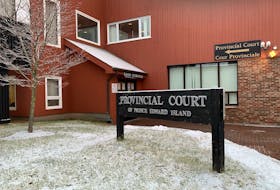SYDNEY, N.S. — DAVID JALA
CAPE BRETON POST
Nova Scotia’s much-maligned property taxation system hurts more Cape Breton homeowners than it helps, say top CBRM officials.
But despite a province-wide appetite for reform of what many critics see as an inequitable distribution of the tax burden, a recent all-party committee review of the Capped Assessment Program (CAP) failed to move the process forward.
The committee is considering a Nova Scotia Federation of Municipalities (NSFM) proposal to eliminate the CAP over a 13-year period. It recently held a series of meetings in Halifax where it heard from a number of stakeholders, including CBRM Mayor Cecil Clarke, who outlined the municipality’s many concerns with the program.
However, the committee, which had initially planned to present its report to provincial Municipal Affairs Minister Chuck Porter by Feb. 20, failed to reach a consensus after Progressive Conservative leader Tim Houston stated it would be impossible to do so without receiving more detailed information about the CAP from the province.
And that’s frustrating to Cape Breton Regional Municipality chief administrative officer Marie Walsh, one of many who have long maintained that the CAP system is unfair. She has argued that the CBRM’s current tax base could be maintained by the elimination of the CAP and an approximate 20 per cent reduction in the tax rate.
“We’ve reviewed it so much that everybody knows it is a bad tax policy – maybe it’s time to go back and look at a resolution just for Cape Breton,” said Walsh, who noted that the CAP has also had a negative effect on CBRM seniors as it has curtailed house construction due to the inevitable high property taxes that would be levied.
“Contractors who build duplexes, often for seniors, have come to me saying the business case is no longer there because the rent they charge would be so high that it would not be affordable for people to move in - they stopped building them and it’s because of the CAP, taxes on new units are twice as much as some of existing ones.”
The capped assessment was implemented in 2005 as a way to protect homeowners from dramatic hikes in their property taxes. However, it’s been estimated that about 54 per cent of homeowners across the province, a number believed to be significantly higher in Cape Breton, have ended up subsidizing others by overpaying. Simplified, the capped assessment on a given property is removed once it is sold, meaning that property will then be taxed at its higher market value.

But Clarke told the committee that the CAP distorts the assessment system by rewarding homeowners for length of occupancy at the expense of others and by placing a greater portion of the tax burden on people purchasing homes, newcomers and seniors who want to downsize.
“We have a complex issue that has polarized people on the position of whether the CAP is good or bad, and depending on which neighbourhood you go to you can find people who are more negatively affected and people who are protected,” said Clarke.
“But at the end of the day we know we have a bad tax policy that needs to be changed, and it needs to be changed in a way that is understood and that is not seen as a tax grab but is instead revenue neutral for municipalities.”
In the meantime, new NSFM president Pam Mood, who is the mayor of Yarmouth, said the all-party committee will await the desired information from the province before scheduling its next meeting.









